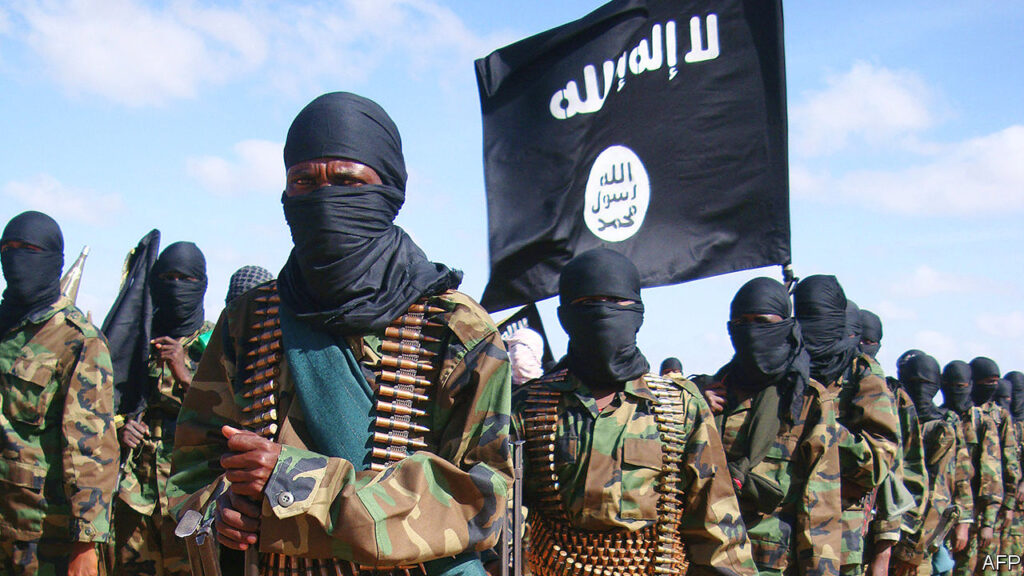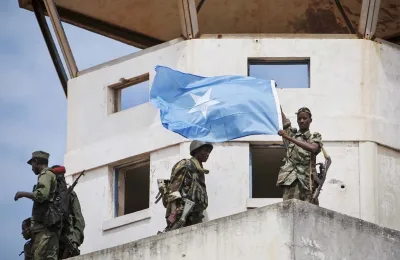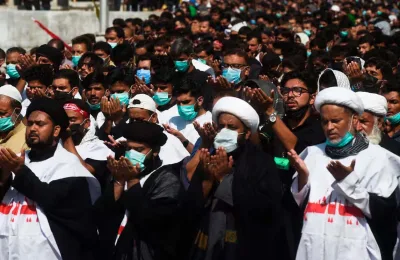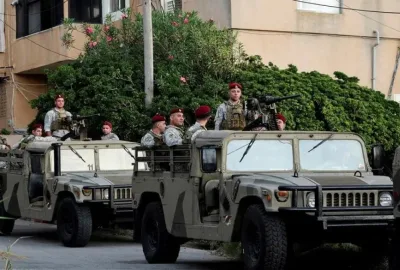Al-Shabaab’s recent attack targeting Somalia’s head of the military is the latest indication of the Islamist…
Al-Shabaab’s recent attack targeting Somalia’s head of the military is the latest indication of the Islamist militant group’s growing confidence in its battle for control of the war-torn country in the Horn of Africa.

Al-Shabaab, the al-Qaeda affiliate in East Africa, has been waging a deadly insurgency in the country for 14 years. Its weapons of choice have ranged from improvised explosive devices (IED) and vehicle-borne improvised explosive devices (VBIEDs), to deploying suicide bombers to target security forces, public installations, and government officials. Its war is largely asymmetrical, where it also relies on hit and run attacks, assassinations, and grenade attacks.
In the last few months, these attacks have accelerated as the world trains its focus on the COVID-19 pandemic. The latest increase in violence is lending credence to earlier predictions that the extremist group would take advantage of the pandemic to step-up attacks (Daily Nation, April 25).
Like the rest of the world, cases of COVID-19 in Somalia are on the rise, surpassing 3,000 in mid-July. The spike has not affected al-Shabaab’s terrorist activities, despite the government launching anti-COVID-19 social distancing measures in March. Its fighters have sustained their operations, increasingly targeting civilians, government officials, and security forces. The persistent attacks have further strained and frustrated the military response being carried out by the Somali National Army (SNA), which is backed by the African Union Mission in Somalia (AMISOM) troops and U.S. forces.
Generally, most of the attacks can be described as low intensity, but numerous, disruptive, and daring. For example, on July 13, the militant group mounted a suicide attack targeting the head of the Somali military, General Yusuf Rageh. The VBIED was driven into General Rageh’s convoy, as he left the defense headquarters in the capital Mogadishu.
Eyewitnesses said the attacker had attempted to strike the military convoy as it moved between the national stadium and the national army hospital in the Hodan district of the capital city. However, soldiers guarding the general shot the VBIED, causing it to explode before it could hit its target. The general was not injured, but a civilian was killed in the blast (Africa News, July 14; Garowe Online, July 14).
Still, on July 4, the militant group detonated a landmine outside a restaurant on the outskirts of Baidoa, a town in the southwestern Bay region, killing five peoples and wounding ten others. In a statement claiming responsibility, the militant group said it was targeting tax collectors and soldiers who had converged in the restaurant for a meeting in the town located about 240 kilometers from Mogadishu.
On the same day, a suicide bomber drove a VBIED into a checkpoint outside the port of the capital. The bomber sped through the first check point before a police officer opened fire at the VBIED, which exploded outside the port’s gate. The target was a police post outside the port. Two officers and five civilians were injured in the attack (CGTN , July 5).
Fighting between SNA soldiers and al-Shabaab militants occurred on June 3 in Burdhabo district in Gedo region. The fighting, which left an unspecified number of casualties, started when al-Shabaab ambushed the government soldiers in the district (Radio Dalsan, June 3).
The attacks came 11 days after al-Shabaab claimed responsibility for a suicide bombing on a Turkish military training base in Somalia that killed two people. The bomber had concealed himself among young men who had gathered to join the Turkish academy in Mogadishu, which trains Somali soldiers (CGTN , July 5).
Al-Shabaab has been able to mount the attacks since it still controls large swathes of territory, including towns, in southern Somalia. In the areas under its control, al-Shabaab leaders and fighters have been frustrating government efforts aimed at taming the spread of disease. While dispatching suicide bombers and assassins, its leaders have rejected containment and social distancing measures, telling the people to continue attending crowded mosques. It has also kept open Islamic schools and institutions in the area.
Top al-Shabaab leaders’ radical interpretation of Islamic teachings has informed the rejection of the containment measures. The group used affiliated media channels Radio al-Furqan and Radio al-Andalus and social media channels such as Calamada and SomaliMemo at the initial stages of the pandemic to portray the disease as a punishment from God to non-believers for their evil deeds against Muslims and jihadists. The group suggested the disease was an American and European problem that had no impact in their region (Daily Nation, April 20).
Months after beginning this disinformation campaign in opposition to government measures, al-Shabaab started responding to the virus. In Jilib, the town in southern Somalia that hosts the insurgency’s latest base, al-Shabaab in mid-June launched an isolation and treatment facility, to treat all people including its fighters. Shaykh Mohammed Bali, a senior al-Shabaab leader and a member of the group’s COVID-19 response team was quoted in the press as urging the people to seek treatment to avoid infecting other Muslims. The facility also had an associated hotline for people to call (Africa News, June 13).
Some analysts say al-Shabaab leaders decided to launch the medical center after it became apparent that the disease would decimate its fighting force and lead to a loss of support if the organization did not provide help for the local people.
In the last few months, al-Shabaab has accelerated attacks and taken advantage as the world focuses its attention on the COVID-19 pandemic.
While COVID-19 adds one more challenge to a country besieged by war and frequent droughts, security experts need to provide more attention to the current state of affairs in Somalia so that al-Shabaab does not continue to take advantage of the pandemic to conduct attacks, recruit and gain more support. In the past, al-Shabaab has used such disasters to its advantage to recruit new fighters and reorganize for their continued fight against the government.
By: Sunguta West
Source:Jamestown







